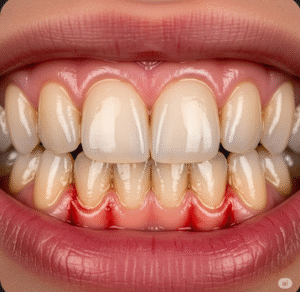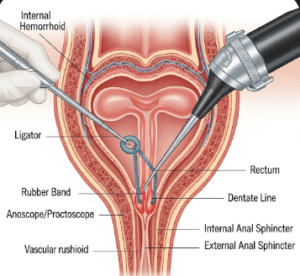Overview
Autoimmune hepatitis is a chronic liver disease in which the immune system attacks healthy liver cells, causing inflammation and potentially leading to cirrhosis or liver failure if left untreated. In Korea, early diagnosis and effective treatment protocols have significantly improved outcomes for patients with autoimmune hepatitis.
What is Autoimmune Hepatitis?
Autoimmune hepatitis (AIH) is an immune-mediated liver condition where the body’s immune system mistakenly targets and damages its own liver tissue. This inflammation can progress over time, impairing liver function and causing irreversible scarring (fibrosis or cirrhosis). Autoimmune hepatitis is classified into:
- Type 1 AIH: The most common form, often associated with other autoimmune diseases.
- Type 2 AIH: Less common, primarily affects children and young adults.
Symptoms
Symptoms may develop gradually or suddenly and include:
- Fatigue and weakness
- Abdominal discomfort, especially in the upper right side
- Jaundice (yellowing of skin and eyes)
- Dark urine and pale stools
- Nausea or loss of appetite
- Joint pain
- Skin rashes or spider angiomas
- Enlarged liver (hepatomegaly)
In some cases, individuals may remain asymptomatic until significant liver damage has occurred.
Causes
The exact cause of autoimmune hepatitis is unknown, but it likely involves a combination of genetic predisposition and environmental triggers. Potential factors include:
- Viral infections (e.g., hepatitis A, B, or C)
- Certain medications
- Genetic susceptibility (HLA-DR3, DR4)
- Hormonal influences (more common in women)
Risk Factors
- Female gender (70–80% of cases are in women)
- Family history of autoimmune diseases
- Coexisting autoimmune conditions (thyroiditis, lupus, celiac disease)
- Certain genetic markers (HLA types)
- Exposure to certain drugs or infections
Complications
Untreated or poorly managed autoimmune hepatitis can lead to:
- Liver cirrhosis
- Portal hypertension
- Liver failure
- Increased risk of liver cancer (HCC)
- Need for liver transplantation
Prevention
Autoimmune hepatitis cannot be completely prevented, but risk can be minimized by:
- Managing coexisting autoimmune conditions
- Avoiding liver-toxic medications and substances
- Regular liver function monitoring for at-risk individuals
- Early diagnosis and consistent medical follow-up
Treatment Options in Korea
South Korea offers advanced diagnostics and treatment options for autoimmune hepatitis, with excellent care available at major hospitals such as Asan Medical Center, Severance Hospital, and Seoul National University Hospital.
1. Diagnosis
- Blood tests to assess liver enzymes (ALT, AST), bilirubin, and immunoglobulins
- Autoantibody tests (ANA, ASMA, LKM-1)
- Liver biopsy to confirm inflammation and rule out other causes
- Ultrasound or elastography to check for liver scarring
2. Medical Treatments
- Corticosteroids (Prednisolone): To suppress immune activity and reduce inflammation
- Azathioprine: Often combined with steroids for long-term maintenance
- Other immunosuppressants (e.g., mycophenolate mofetil, cyclosporine) in steroid-intolerant cases
- Monitoring and dose adjustments to avoid side effects and maintain remission
3. Liver Transplantation
In cases of liver failure or unresponsive disease, liver transplant may be necessary. Korea has successful transplantation programs with high survival rates.
4. Supportive Care & Lifestyle
- Dietary adjustments: Low-sodium, high-protein diet
- Avoiding alcohol and hepatotoxic substances
- Regular follow-ups for monitoring flare-ups or medication side effects
- Vaccinations: For hepatitis A and B if not already immune
5. Traditional Korean Medicine (TKM) Support
- Herbal remedies aimed at reducing inflammation and supporting liver function
- Acupuncture and moxibustion for fatigue and abdominal discomfort
- Integrated care is available at some Korean medical centers offering both Western and Hanbang therapies












